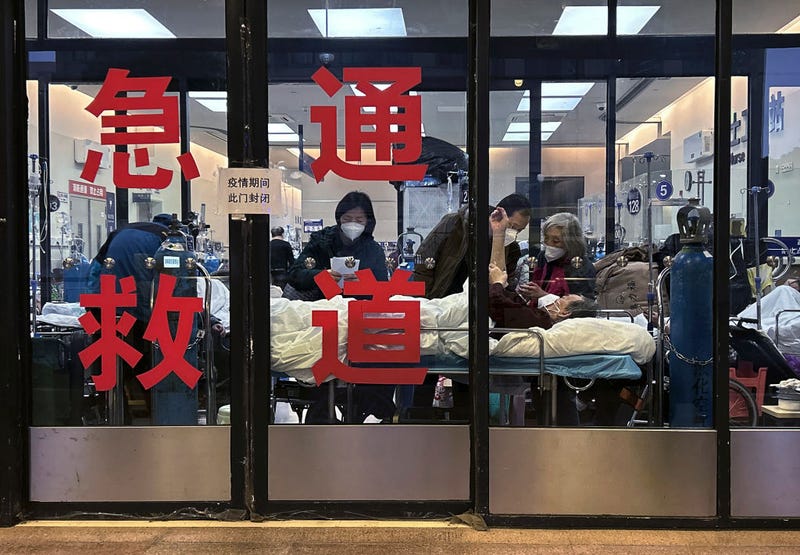
A group of GOP lawmakers have called for the U.S. to restrict travel to China due to reports of “mystery illness” spreading there.
Sen. Marco Rubio (R-Fla.), Sen. J.D. Vance (R-Ohio), Rick Scott (R-Fla.), Tommy Tuberville (R-Ala.), and Mike Braun (R-Ind.) signed the letter addressed to President Joe Biden.
“In light of an unknown respiratory illness spreading throughout the People’s Republic of China (PRC), we call on you to immediately restrict travel between the United States and the PRC,” it said. “As you know, the Chinese Communist Party (CCP) has a long history of lying about public health crises. During the COVID-19 pandemic, the CCP’s obfuscation of the truth, and lack of transparency, robbed the United States of vital knowledge about the disease and its origin.”
When the COVID-19 outbreak started growing 2020, the U.S. did put travel restrictions in place, per the U.S. Centers for Disease Control and Prevention. That outbreak was first detected in Wuhan, China.
“President Trump issued an order to restrict travel from the PRC into the United States to protect the American people and counter the spread of COVID-19,” said the letter. “Many officials and commentators – including you – criticized his decision as being influenced by ‘xenophobia.’ But history and common sense show his decision was the right one.”
According to a November notice from the World Health Organization, it has been monitoring data from Chinese surveillance systems since mid-October. This data showed an increase in respiratory illness in children in northern China.
“At a press conference on 13 November 2023, China’s National Health Commission reported on a nationwide increase in the incidence of respiratory diseases, predominantly affecting children,” said the WHO. “Chinese authorities attributed this increase to lifting of COVID-19 restrictions and the arrival of the cold season, and due to circulating known pathogens such as influenza, Mycoplasma pneumoniae, respiratory syncytial virus (RSV), and severe acute respiratory syndrome coronavirus 2 (SARS-CoV-2). Mycoplasma pneumonia and RSV are known to affect children more than adults.”
By late November, the WHO identified media reports about “clusters of undiagnosed pneumonia in children’s hospitals in Beijing, Liaoning,” and other parts of China. It made an official request to China for more information, including laboratory results about recent trends in respiratory pathogens.
“A key purpose was to identify whether there have been ‘clusters of undiagnosed pneumonia’ in Beijing and Liaoning as referred to in media reports, and if so whether these were separate events, or part of the known general increase in respiratory illnesses in the community,” the WHO explained.
During a Nov. 23 teleconference, Chinese authorities said there has been no detection of any unusual or novel pathogens or unusual clinical presentations, including in Beijing and Liaoning. However, they did say there has been a general increase in respiratory illnesses due to multiple known pathogens. Some of these increases were expected in the wake of lifting COVID-19 restrictions. Chinese officials further stated that this uptick in cases has not caused hospitals to exceed capacity.
“There is limited detailed information available to fully characterize the overall risk of these reported cases of respiratory illness in children,” said the WHO in November. “However, due to the arrival of the winter season, the increasing trend in respiratory illnesses is expected; co-circulation of respiratory viruses may increase burden on health care facilities.”
Still, based on the available information, the WHO did not recommend any specific measures for travelers to China. It also advised against “the application of any travel or trade restrictions based on the current information available on this event.”
Precautions such as masking when ill, frequent handwashing and keeping updated on vaccines are advised.
Even though the WHO has advised against travel restrictions, Rubio and the other Republican politicians said in the letter they believe the “CCP has an incentive to lie,” and that the CCP has a “track record of slavish deference” to China.
“If history is any indication, we have cause to be concerned,” they claimed. The lawmakers argued that a travel ban put in place now could prevent lockdowns, mandates, outbreaks and death later.
